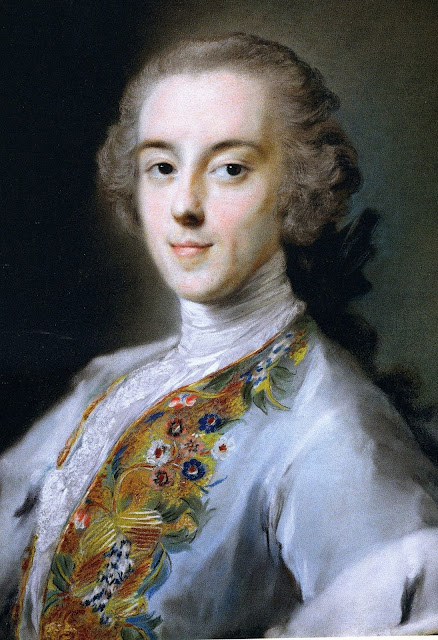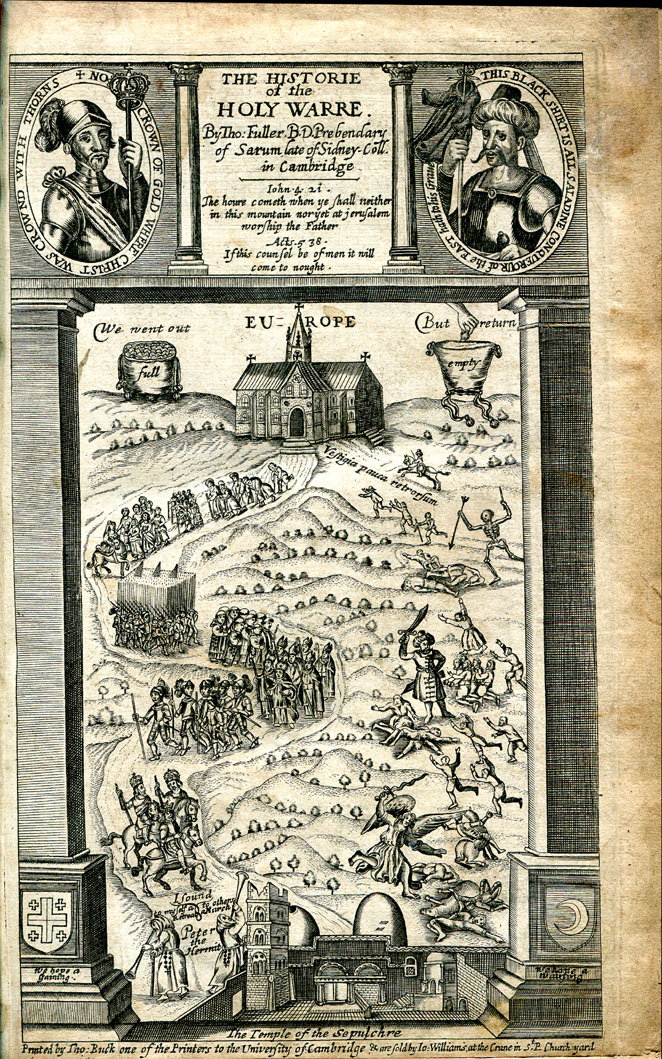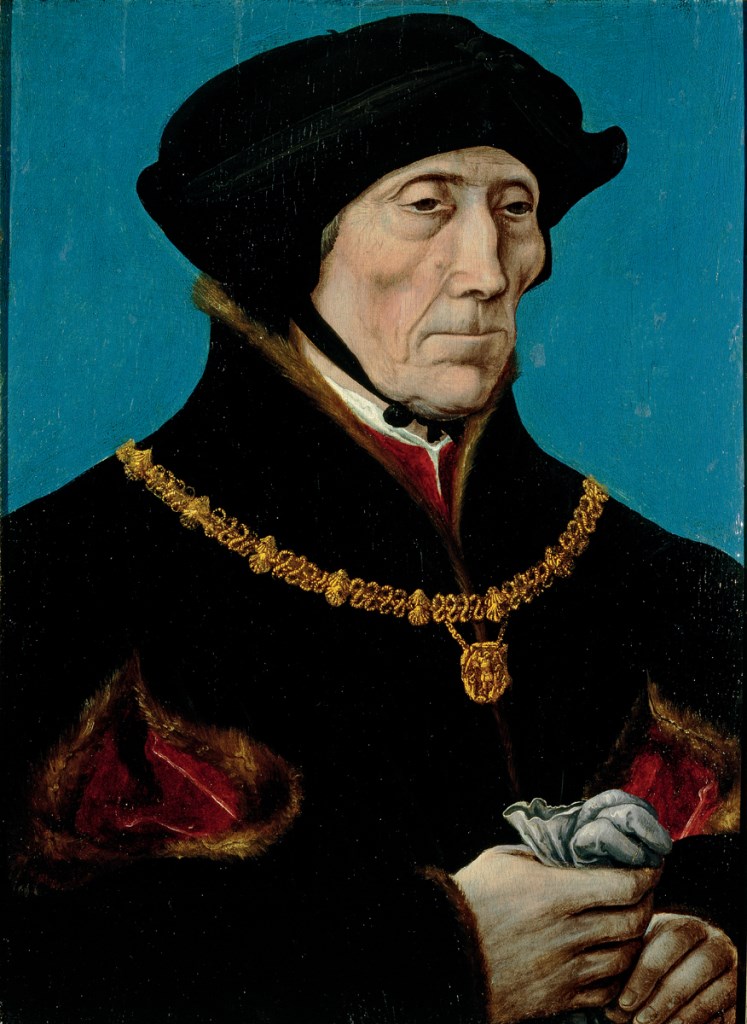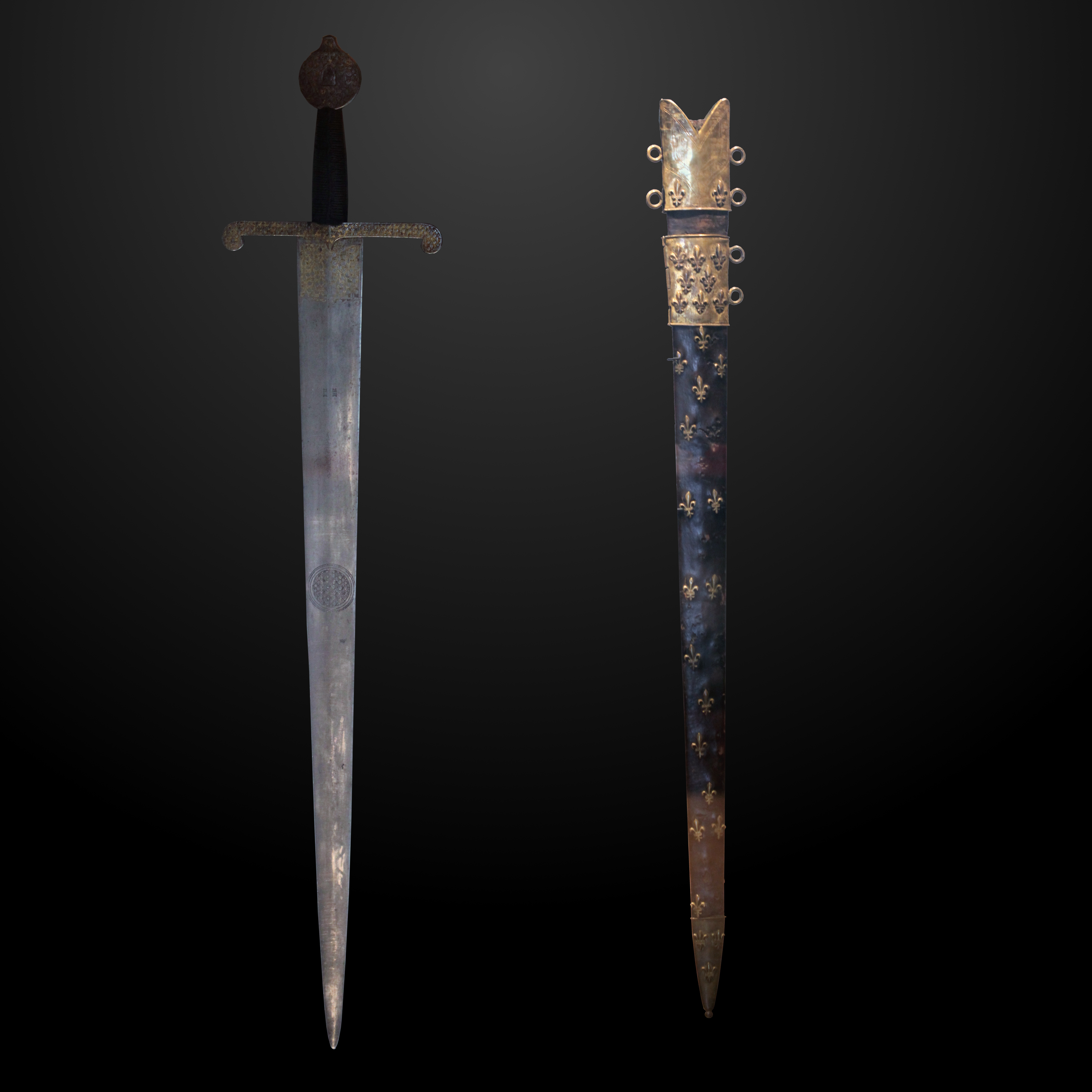|
Barnaby Fitzpatrick, 2nd Baron Upper Ossory
Barnaby Fitzpatrick, 2nd Baron Upper Ossory ( – 11 September 1581) was an Irish military officer and politician. He was educated at the court of Henry VIII of England with Edward, Prince of Wales. While he was in France, he corresponded regularly with King Edward VI. He was active in suppressing Wyatt's rebellion in 1553. He went home to Ireland, where he would have a lifelong feud with the Earl of Ormonde. His wife and daughter were abducted in 1573 by the Grace family, supposedly at Ormonde's instigation. He killed his cousin, the rebel Rory O'More in 1578. Early life Fitzpatrick was the eldest son and heir of Barnaby Fitzpatrick, 1st Baron Upper Ossory and Margaret, eldest daughter of Piers Butler, 8th Earl of Ormond. He was born in Ireland, probably about 1535. Sent at an early age into England as a pledge of his father's loyalty, he was educated at court, where he became the closest companion of Edward, Prince of Wales, later Edward VI, with whom he was to remain on clo ... [...More Info...] [...Related Items...] OR: [Wikipedia] [Google] [Baidu] |
The Right Honourable
''The Right Honourable'' (abbreviation: The Rt Hon. or variations) is an honorific Style (form of address), style traditionally applied to certain persons and collective bodies in the United Kingdom, the former British Empire, and the Commonwealth of Nations. The term is predominantly used today as a style associated with the holding of certain senior public offices in the United Kingdom, Canada, New Zealand, and, to a lesser extent, Australia. ''Right'' in this context is an adverb meaning 'very' or 'fully'. Grammatically, ''The Right Honourable'' is an adjectival phrase which gives information about a person. As such, it is not considered correct to apply it in direct address, nor to use it on its own as a title in place of a name; but rather it is used in the Grammatical person, third person along with a name or noun to be modified. ''Right'' may be abbreviated to ''Rt'', and ''Honourable'' to ''Hon.'', or both. ''The'' is sometimes dropped in written abbreviated form, but is ... [...More Info...] [...Related Items...] OR: [Wikipedia] [Google] [Baidu] |
Lord High Admiral Of The United Kingdom
Lord High Admiral of the United Kingdom (of England beginning in the 14th century, later of Great Britain from 1707 to 1800) is the title of the ceremonial head of the Royal Navy. Most have been courtiers or members of the British royal family, and not professional naval officers. The Lord High Admiral is one of the nine English Great Officers of State and since 2021 is held personally by the reigning monarch (currently King Charles III, who is also Commander-in-Chief of the Armed Forces). History In 1385 Richard, Earl of Arundel, was appointed Admiral of England, reuniting the offices of Admiral of the North and Admiral of the West, separate from 1294. From 1388 the offices of Admiral of the North and of the West were again distinct, though often held by the same man, until "Admirals of England" were appointed continuously from 1406. The titles "High Admiral" and "Lord Admiral" were both used, eventually combining in "Lord High Admiral". The Lord High Admiral did not orig ... [...More Info...] [...Related Items...] OR: [Wikipedia] [Google] [Baidu] |
Gerald FitzGerald, 11th Earl Of Kildare
Gerald FitzGerald, 11th Earl of Kildare (1525 – 16 November 1585), also known as the "Wizard Earl" (a sobriquet also given to Henry Percy), was an Irish peer. He was the son of Gerald FitzGerald, 9th Earl of Kildare and his second wife Elizabeth Grey of the Royal House of Grey. Biography Young Lord Kildare became the sole male representative of the Kildare Geraldines at the age of twelve, after his half-brother, Silken Thomas, the tenth earl, was executed at Tyburn in February 1537 with five of his uncles. He spent the next few years on the run in Ireland and spent some time in Tír Chonaill (now mainly County Donegal) in Ulster, under the guardianship of his aunt, Lady Eleanor McCarthy, the wife of Manus O'Donnell, ''An Ó Domhnaill''. The short-lived Geraldine League, a federation including the O'Neills, the O'Donnells, the O'Briens of Thomond, and other powerful Irish clans related to the Geraldines through marriages, formed around FitzGerald's claim to the ... [...More Info...] [...Related Items...] OR: [Wikipedia] [Google] [Baidu] |
John Gough Nichols
John Gough Nichols (1806–1873) was an English painter and antiquary, the third generation in a family publishing business with strong connection to learned antiquarianism. Early life The eldest son of John Bowyer Nichols, he was born at his father's house in Red Lion Passage, Fleet Street, London, on 22 May 1806. Richard Gough (antiquarian), Richard Gough was his godfather. He went to a school kept by a Miss Roper at Islington, where, in 1811, Benjamin Disraeli, his senior by eighteen months, was a schoolfellow. From 1814 to 1816 he was educated by Thomas Waite at Lewisham grammar school, and in January 1817 he was placed at Merchant Taylors' School, Northwood, Merchant Taylors' School. Career In 1824 Nichols left school for the counting-house in the printing offices of his father and grandfather. In 1830 he visited Robert Surtees (antiquarian), Robert Surtees in Durham, England, Durham, and made a Scottish tour. On the foundation of the Surtees Society in 1834 he was elected ... [...More Info...] [...Related Items...] OR: [Wikipedia] [Google] [Baidu] |
Gentlemen's Magazine
''The Gentleman's Magazine'' was a monthly magazine founded in London, England, by Edward Cave in January 1731. It ran uninterrupted for almost 200 years, until 1907, ceasing publication altogether in 1922. It was the first to use the term ''magazine'' (from the French ''magazine'', meaning "storehouse") for a periodical. Samuel Johnson's first regular employment as a writer was with ''The Gentleman's Magazine''. History The original complete title was ''The Gentleman's Magazine: or, Trader's monthly intelligencer''. Cave's innovation was to create a monthly digest of news and commentary on any topic the educated public might be interested in, from commodity prices to Latin poetry. It carried original content from a stable of regular contributors, as well as extensive quotations and extracts from other periodicals and books. Cave, who edited ''The Gentleman's Magazine'' under the pen name "Sylvanus Urban", was the first to use the term ''magazine'' (meaning "storehouse") for a ... [...More Info...] [...Related Items...] OR: [Wikipedia] [Google] [Baidu] |
James Halliwell-Phillipps
James Orchard Halliwell-Phillipps (born James Orchard Halliwell; 21 June 1820 – 3 January 1889) was an English writer, Shakespearean scholar, antiquarian, and a collector of English nursery rhymes and fairy tales. Life The son of Thomas Halliwell, a wealthy draper from Chorley Lancashire, he was born at Sloane Street, Chelsea, London and was educated privately and at Jesus College, Cambridge. He devoted himself to antiquarian research, particularly of early English literature. Beginning at the age of 16, between 1836 and 1837, he contributed 47 articles to ''The Parthenon. A Weekly Journal of English and Foreign Literature, the Arts, and Sciences''; in 1839 he edited Sir John Mandeville's ''Travels''; in 1842 he published an ''Account of the European manuscripts in the Chetham Library'', besides a newly discovered metrical romance of the 15th century (''Torrent of Portugal''). In 1841, while still a student at Cambridge, Halliwell dedicated his book ''Reliquae Antiquae'' ... [...More Info...] [...Related Items...] OR: [Wikipedia] [Google] [Baidu] |
Dublin University Magazine
The ''Dublin University Magazine'' was an independent literary cultural and political magazine published in Dublin from 1833 to 1882. It started out as a magazine of political commentary but increasingly became devoted to literature. The magazine was published under the title ''The Dublin University Magazine: A Literary and Political Journal'' from January 1833 to December 1877 (volumes 1 to 90), then under the title ''The University Magazine: A Literary and Philosophic Review'' with a new series from 1878 to 1880 (volumes 1 to 5), and then under the title ''The University Magazine'' with a quarterly series from 1880 to 1882. Early days The year 1832 had been one of political and ecumenical upheaval: disturbances in Britain led to the Reform Act 1832, Reform Act of that year, the Tithe War was raging in Ireland and the new British Whig Party, Whig government was gaining influential supporters in Trinity College Dublin. A number of young men associated with the college, including I ... [...More Info...] [...Related Items...] OR: [Wikipedia] [Google] [Baidu] |
Horace Walpole
Horatio Walpole, 4th Earl of Orford (; 24 September 1717 – 2 March 1797), better known as Horace Walpole, was an English Whig politician, writer, historian and antiquarian. He had Strawberry Hill House built in Twickenham, southwest London, reviving the Gothic style some decades before his Victorian successors. His literary reputation rests on the first Gothic novel, '' The Castle of Otranto'' (1764), and his ''Letters'', which are of significant social and political interest. They have been published by Yale University Press in 48 volumes. In 2017, a volume of Walpole's selected letters was published. The youngest son of the first British Prime Minister, Sir Robert Walpole, 1st Earl of Orford, he became the 4th and last Earl of Orford of the second creation on his nephew's death in 1791. Early life: 1717–1739 Walpole was born in London, the youngest son of British Prime Minister Sir Robert Walpole and his wife, Catherine. Like his father, he received early educatio ... [...More Info...] [...Related Items...] OR: [Wikipedia] [Google] [Baidu] |
Thomas Fuller
Thomas Fuller (baptised 19 June 1608 – 16 August 1661) was an English churchman and historian. He is now remembered for his writings, particularly his ''Worthies of England'', published in 1662, after his death. He was a prolific author, and one of the first English writers able to live by his pen (and his many patrons).Stephen, Leslie (1889). " Thomas Fuller". In ''Dictionary of National Biography''. 20. London. pp. 315-320. Early life Fuller was the eldest son of Thomas Fuller, rector of Aldwinkle St Peter's, Northamptonshire. He was born at his father's rectory and was baptised on 19 June 1608. Dr John Davenant, bishop of Salisbury, was his uncle and godfather. According to John Aubrey, Fuller was "a boy of pregnant wit". At thirteen he was admitted to Queens' College, Cambridge, then presided over by John Davenant. His cousin, Edward Davenant, was a tutor there. He did well academically; and in Lent 1624–1625 he became B.A. and in July 1628, at only 20 years of age ... [...More Info...] [...Related Items...] OR: [Wikipedia] [Google] [Baidu] |
Roxburghe Club
The Roxburghe Club is a Bibliophilia, bibliophilic and Text publication society, publishing society based in the United Kingdom. Origins The spur to the Club's foundation was the sale of the enormous library of the John Ker, 3rd Duke of Roxburghe, Duke of Roxburghe (who had died in 1804), which took place over 46 days in May–July 1812. The auction was eagerly followed by Bibliophilia, bibliophiles, the high point being the sale on 17 June 1812 of the first dated edition of Giovanni Boccaccio, Boccaccio's ''The Decameron, Decameron'', printed by Christophorus Valdarfer at Venice in 1471, and sold to the George Spencer-Churchill, 5th Duke of Marlborough, Marquis of Blandford for £2,260, the highest price ever given for a book at that time. (The Marquis already possessed a copy, but one that lacked 5 pages.) That evening, a group of eighteen collectors met at the St Albans Tavern, St Albans Street (later renamed Waterloo Place) for a dinner presided over by the George Spencer, 2nd ... [...More Info...] [...Related Items...] OR: [Wikipedia] [Google] [Baidu] |
Anne De Montmorency
Anne de Montmorency, duc de Montmorency ( – 12 November 1567) was a French noble, governor, royal favourite and Constable of France during the mid to late Italian Wars and early French Wars of Religion. He served under five French kings (Louis XII of France, Louis XII, François I of France, François I, Henri II of France, Henri II, François II of France, François II and Charles IX of France, Charles IX). He began his career in the latter Italian Wars of Louis XII, seeing service at Battle of Ravenna (1512), Ravenna. When François, his childhood friend, ascended to the throne in 1515 he advanced as governor of the Bastille and Novara, then in 1522 was made a Marshal of France. He fought at the French defeat at Battle of La Bicocca, La Bicocca in that year, and after assisting in rebuffing the invasion of Charles III, Duke of Bourbon, Constable Bourbon he was captured at the disastrous Battle of Pavia. Quickly freed he worked to free first the king and then the king's sons. ... [...More Info...] [...Related Items...] OR: [Wikipedia] [Google] [Baidu] |
Constable Of France
The Constable of France (, from Latin for 'count of the stables') was lieutenant to the King of France, the first of the original five Great Officers of the Crown (along with seneschal, chamberlain, butler, and chancellor) and the commander-in-chief of the Royal Army. He was, at least on paper, the highest-ranking member of the French nobility. The was also responsible for military justice and served to regulate the Chivalry. His jurisdiction was called the Constabulary (; or in modern French orthography which sticks closer to the correct pronunciation: ). The office was established by King Philip I in 1060 AD, with Alberic becoming the first Constable. The office was abolished in 1627, with an edict, by Cardinal Richelieu, upon the death of , in order to strengthen the immediate authority of the King over his army. The position was officially replaced by the purely ceremonial title "Dean of Marshals" (), who was in fact the most senior "Marshal of France" (); as the word ... [...More Info...] [...Related Items...] OR: [Wikipedia] [Google] [Baidu] |







